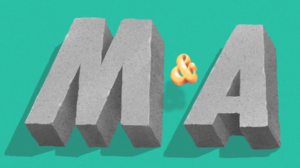Owen Williams is a self-employed journalist and developer building experiments in news and beyond at Charged. Previously, he was Head of Digital at VanMoof and an Editor at The Next Web.
Earlier this week, European Parliament voted to ratify infamous copyright legislation that threatens to change the Internet as we know it. Both article 11 and 13 have wide-reaching consequences that affect Europe’s ability to compete as a destination for startups—the risks will simply be too high for even the “safest” of bets.
Let’s recap what these pieces of new legislation actually do.
Article 11 is a misguided attempt to help publishers better monetize their content: it requires anyone using a “snippet” of any journalistic content to purchase a license from the publisher. The law would affect anyone from Facebook or Twitter showing an excerpt of an article in your timeline, to potentially a site like Crunchbase simply quoting a headline.
This piece of legislation was aimed at sites like Google News—an aggregator—where users can see hundreds of chunks of articles in order to determine if they should click on it in the first place. Similar legislation was implemented previously in Spain and Germany, with broad consequences including Google News shutting down, which led to a dramatic drop in traffic for local publishers.
Article 13 forces anything that can be classified as a “platform” to automatically filter all uploaded content for any potential copyright infringement. Backed by the music industry, the law forces sites like YouTube or Facebook to surveil all uploads and catch violations before they’re made public—despite reality suggesting that this is technically impossible to achieve.
Not only are large commercial platforms affected—and at risk of fines—community-run organizations are as well. Everything from your favorite forum to community-created content on Twitch will require their owners to somehow determine what constitutes ‘copyrighted’ content and automatically remove it from their websites.
Both of these proposals are frustratingly vague in their definition of what infringes, and provide very few loopholes for startups to leverage against bigger, better financed players that seem to penalize them. Article 11 defines a snippet so vaguely that even quoting a headline could be considered a violation, and Article 13 simply demands that all copyrighted content must be caught at the time of upload.
Here’s an example of what that might look like in practice, according to Google:
International companies making their services available in Europe must now choose: is it worth serving these users at all, and will I be able to apply these laws to my platform? It’s unclear if Google will continue to operate products like News in full on the continent, warning in early 2019 that news results will need to be heavily censored in order to meaningfully comply with the changes. It’s more likely that they’ll simply shutter the service altogether.
Shuttering international services for European users wouldn’t be unprecedented, either, because we’ve already been there. The European Union’s GDPR legislation, which was widely accepted as a positive step for user privacy, had ripple effects for internet users in Europe: many sites simply blocked users from visiting, and platforms like Instapaper refused to serve existing users there. Some of those walls did eventually come down, but users have adjusted to these restrictions as being their new normal.
Founders Will Avoid Europe
For Europe’s startups and founders, the rules change is going to raise a new question: why would I build a new company in Europe, where I risk large fines from poorly designed legislation, will struggle to raise capital, and must deal with red tape—when I could simply start in a friendlier environment such as the US, Canada, or even a place like New Zealand?
As a founder of a bootstrapped company based in the Netherlands myself, it’s difficult to make a compelling argument for creating a startup here with these new laws in play. Dealing with the complexities of European VAT and filing tax in each member state was already a stretch, but this might be the final nail in the coffin of creating anything new here.
Article 11 affects me, personally, on a grand scale. I operate a simple paid subscription newsletter, Charged, which rounds up technology news in the morning for readers, digesting it, and linking out to a number of articles worth reading.
Under these changes I need to license any quotes or direct headlines from these articles before I can even send my newsletter—which would render it unsustainable for both the time involved to procure them and the cost. Ignoring the law could bring hefty fines because there are no exceptions—even if you’re just starting out. I may need to shutter my community as well, since any user could violate content on a Discourse server easily enough.
For other founders, it’s likely to be the same: the risk is now too great, and any service that might have started here in the future will almost certainly shut its doors to European users and sources to avoid penalties. Instead of its intended purpose—helping news organizations thrive—it will do the opposite, killing their few remaining sources of traffic, leaving them scrambling for oxygen.
Article 13 will drive any remaining ideas away, as well. Want to create the European Reddit? It’s now almost impossible—you must screen submissions for potential copyright infringement before you can. Working on the next big private note taking app? You’re in the same boat, because users might paste copyrighted videos or images on your service. An array of successful existing European startups from WeTransfer to Intercom will ultimately find themselves affected by these changes, with few answers as to how to deal with them.
It’s now difficult to be competitive here unless you’re equipped with millions of dollars and an army of lawyers, leaving only the largest of companies to fight over the scraps.
Left Hand, Meet Right Hand
All of this is incredibly perplexing in the context of Europe’s attempts to attract startups. France, just weeks ago, introduced a special visa for technology talent—no fees or investments required—to help stimulate its budding tech economy. The Netherlands offers tax incentives, visas and a fast-track for startups. Even the European Union is heavily promoting itself as a destination for new ideas.
And yet, it may have just stolen the wind from its own wings. The risks of starting a business here, let alone offering a service to European users, is too great. Instead, founders and startups alike will consider avoiding the continent altogether, creating fractures in the open web as we know it.
Casey Newton, Editor at The Verge, argues that these legislative changes are going to create a “third internet” that sees European users end up with a worse, restricted version of the open web.
It’s worse than that: we’ll end up with no innovation at all, because founders are simply too afraid to come here in the first place and those who are here will consider leaving when they’re working on the next Spotify or SumUp. It’s as simple as that, and the effects will play out over the years to come.
Author update: A previous version of this article said that open-source platforms like GitHub would be affected by these changes. However GitHub says that it “worked with policymakers to secure an exemption from this provision in the final legislation” and that “open source software platforms” are specifically excluded from Article 11/13.

Stay up to date with recent funding rounds, acquisitions, and more with the Crunchbase Daily.








67.1K Followers